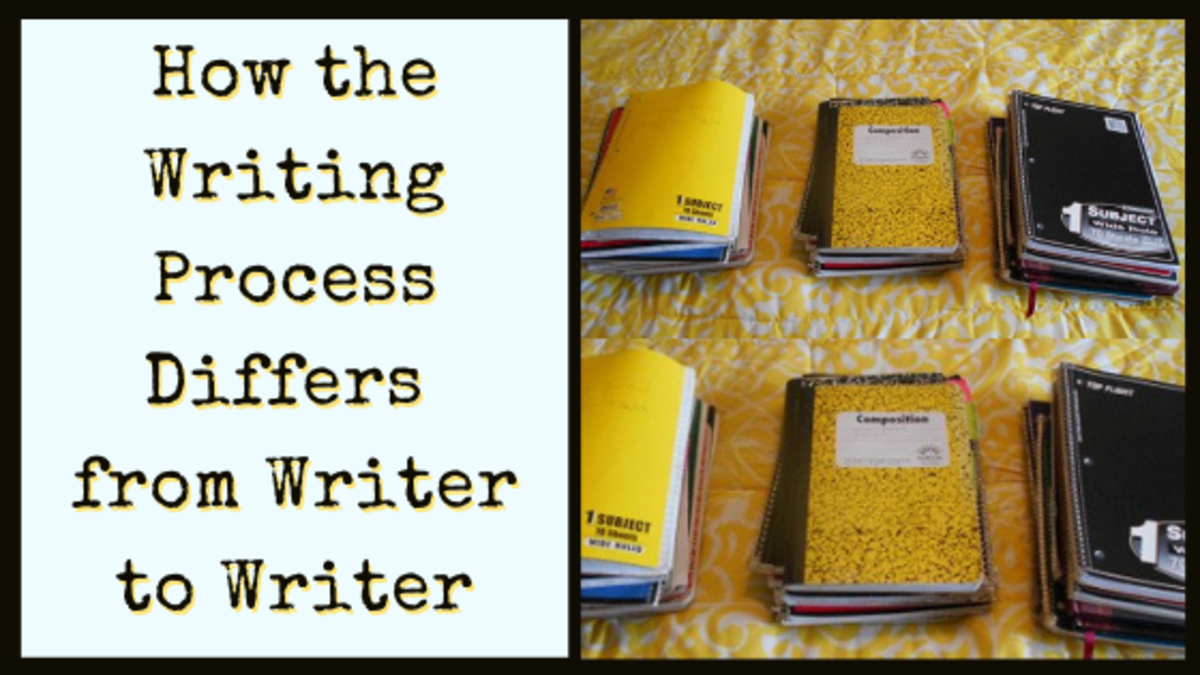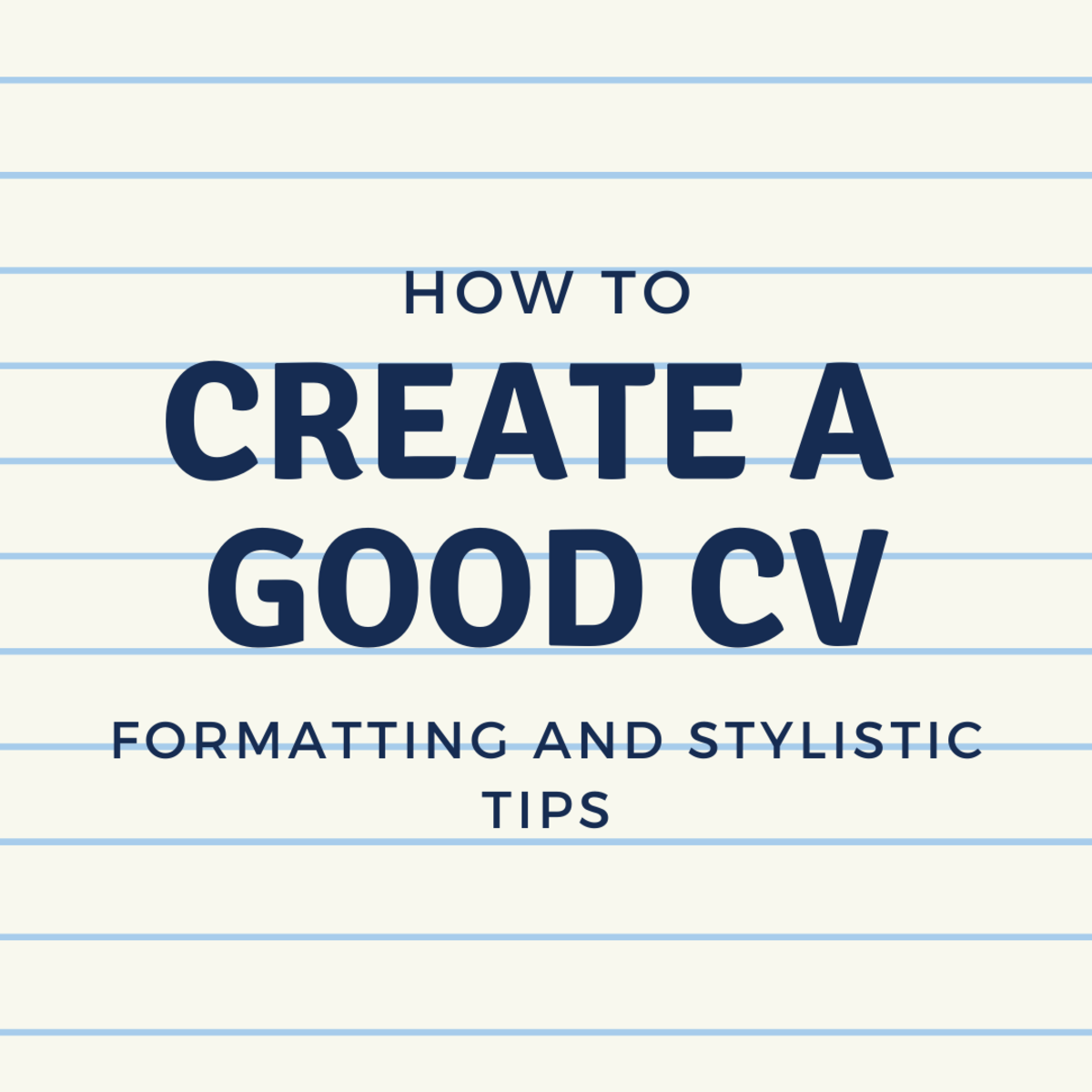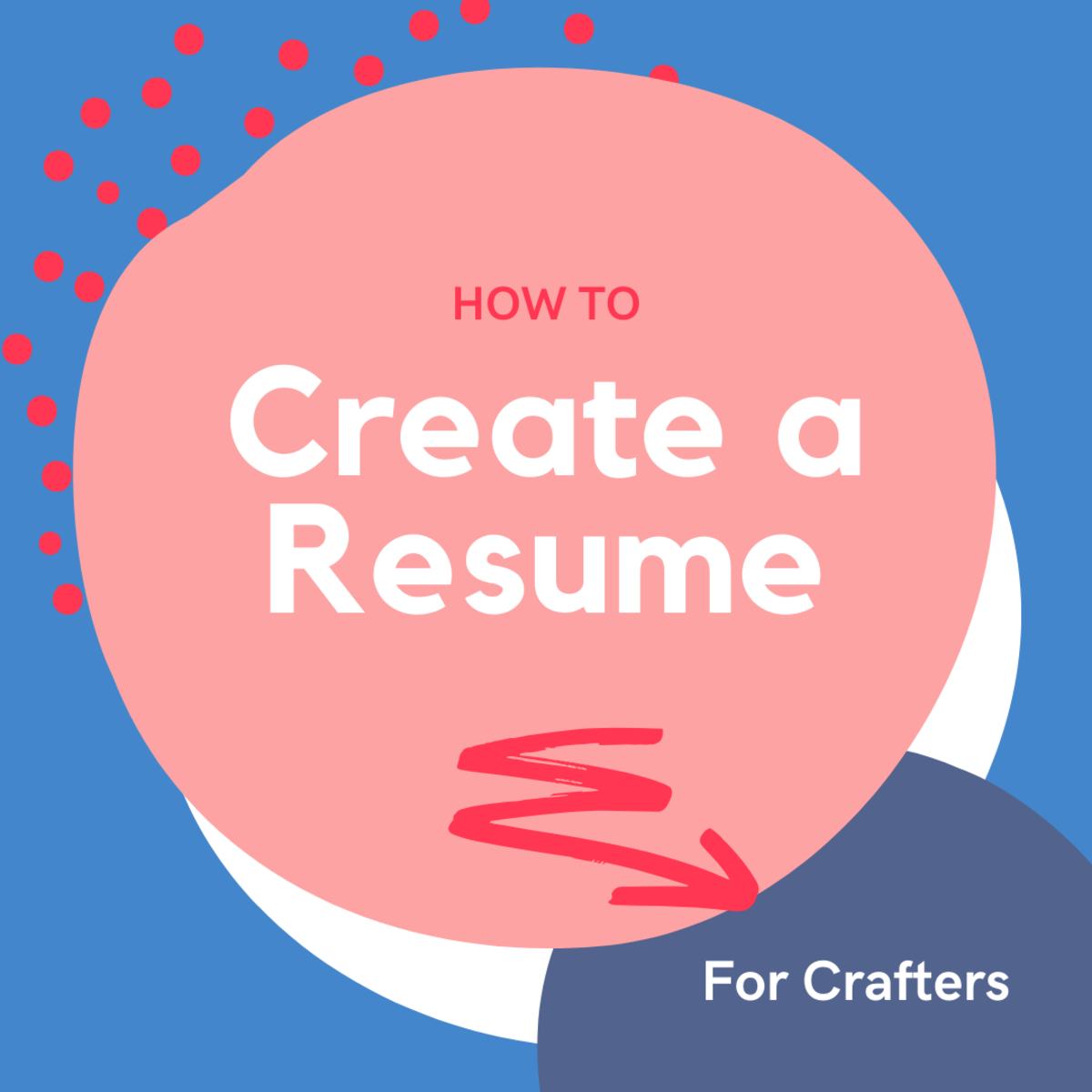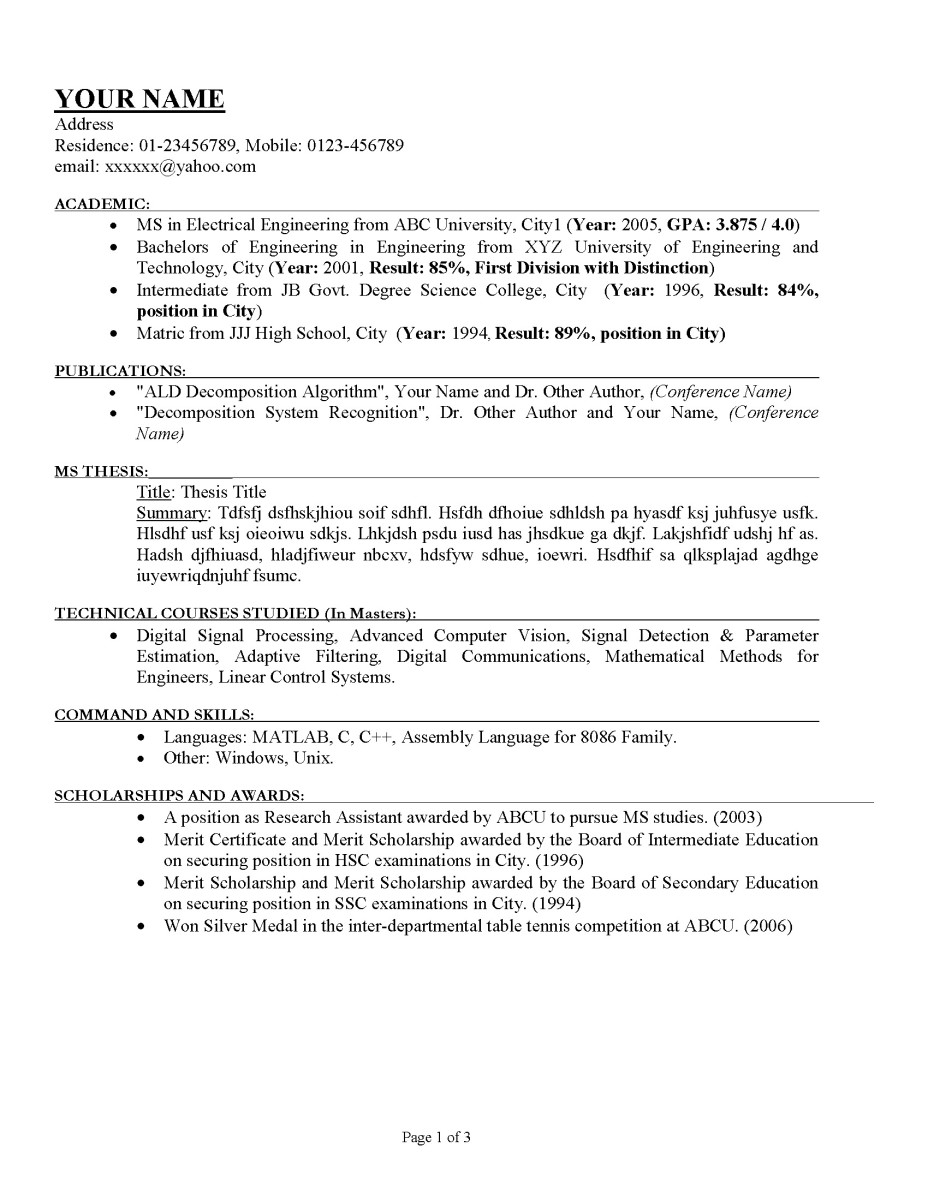How to Write a Resume: Tips from a Resume Writer
Advice for writing an effective resume:
If you're looking for tips and answers to questions you may have about writing an effective resume, there are a few things that can safely be assumed. You're either looking for a new career, looking to replace a job in your current career, have just been notified you need to find a replacement job, or you're at the beginning of the spectrum and are preparing to start a new career.
No matter where your search finds you, I believe you've come to just the spot to answer some of those questions you've come searching for. If not, I hope I can point you in the right direction.
Your resume is a professional snapshot of YOU!

What does it take to write a winning resume?
In my previous hub, An Introduction to the Art of Resume Writing, I detailed some of the basics to writing an effective resume.
In this hub I will be sharing some of my own experience in resume writing and some tips that may help you take your own resume to the next level.
During the course of my career I've often been asked to review and even rewrite the resumes of friends and coworkers. Sometimes I've done it for free, other times I've been paid. Everyone I've helped been able to land a position with what I've written. Sometimes it took a few tries, and you'll find that will be the case with any job you apply for. Sometimes you get it, sometimes you don't. The key is targeting jobs based on your skills and then conveying those skills clearly and professionally.
Resume Writing Tips, How To Write a Creative Resume & Get a Job by Michelle, WriteByNight
Rate the YouTube Video!
Resume Resources on Amazon
Do you need to pay someone to write your resume?
First, ask yourself this question: What makes a resume writing professional special? Why would someone pay them, or anyone, to write their resume? There are a lot of reasons people do things, but one of the biggest reasons people choose to pay a resume writer is because it's hard for them to translate what they do into what they can provide in a way that employers can understand. Does this, somehow make a resume writer any different?
These same difficulties can also be applicable to resume writing professionals when they attempt to inventory their own skills to present to their clients. Honestly, my business has come directly as a result of people seeing either my own resume, one that I've written for someone else, or by word of mouth. Being able to see, touch, feel, hear, taste, or smell the product of someone's efforts, or having testimony from someone trusted is an age-old methodology of assessing worth. If you don't have that kind of opportunity, you have to result to selling yourself -- convincing others you are worth their time in the least amount of time possible. That's what the corporate resume is all about.
The only way to really answer the question is to examine your perspectives and capabilities and determine if you can translate those into describable and marketable skills. Read on for more tips on how to do so.
Take the poll!
Did your resume help you land your latest gig?
What is the secret to writing a great resume?
Over the years my resume has taken on different forms and layouts and I've even used multiple resumes at the same time while applying for different jobs. I would like to believe it all comes down to my love of writing, but in truth, I've applied for a lot of different positions. Some were ones I felt very qualified for, while others I knew were a shot in the dark. Surprisingly enough, some of my greatest successes were the long-shots that I specifically tailored my resume for before I sent out the application.
It is also important to keep in mind what format of resume you should send in based on the type of employment you're seeking. A resume for a government job where your document is scanned for keywords and phrases will be much different, and bulkier, than a resume you submit to a corporate entity.
The process of applying for various jobs throughout the years has taught me some of what works and a lot of what doesn't. I spent a good portion of my military service writing bullet statements for performance evaluations and awards. Even then, I was often asked to assist my supervisors and peers to help put together winning packages. It all came down to taking a task performed and boiling it down to a skill and then measuring the impact that skill had on accomplishing the mission.
But what if you're not in the military? What is your mission? This can be an incredibly difficult question to answer for some in the private sector. Fear not, however! You still have some great tools at your disposal.
So, what tools can you use to start writing a resume?
What I often ask when preparing a resume is that I be provided with the following:
- A copy of the current resume, if available.
- A few examples of jobs the individual would like to apply for, if they aren't approaching me to write for a specific position.
- A ballpark range of earnings for each position they've previously held.
- Any specialized education or training sessions attended.
- Any current certifications obtained or in progress, with expected completion date.
- And finally, any information that might be helpful in writing the resume the individual might be able to supply.
On top of this, I ask for a certain level of cooperation from the other party involved. I may do some research on my own, such as looking up similar job postings or different job titles with similar duties. If I need to ask some follow-up questions to be sure I'm accurately recording a person's skills, they need to be available so we can make sure the resume doesn't misrepresent the abilities and knowledge they can offer a potential employer.
That bit of information will generally get me off to a good start.
Is there anything else you can think of to add to your personal Resume toolkit?
Use this resume writing scenario as a quick exercise!
If you are unclear about your impact on the operations of a business or charity that you've worked or volunteered for, you can always use the mission statements those organizations use to justify their purpose.
Let's take Heifer International as an example. This is a non-profit organization, but let's say you were a volunteer who helped manage a regional event where a community was provided livestock, bees for honey, and training on animal husbandry and apiary management. In this situation your duties might have been limited to lining up the capital, donation resources, and keeping track of the project until everyone else had done their part.
Wow! That sounds a lot like Project Management. And we all know that countless emails and phone calls could be exchanged trying to coordinate all that activity. While it isn't exactly back-breaking work, it is commendable. So how do we relate this non-paid experience into a viable resume input?
Regardless of whether you were paid, you went through the same motions you would have if you were in a paid position. The work got done, and you were an important cog in the grand machine. Now we need to provide some perspective. Let's take a look at the Heifer International Mission page.
"By giving families a hand-up, not just a handout, we empower them to turn hunger and poverty into hope and prosperity, but our approach is more than that. By bringing communities together and linking them with markets in their area, we help bring sustainable agriculture and commerce to areas with a long history of poverty.
Our animals don't just provide project partners with a reliable source of food, but also a reliable source of income. Extra agricultural products, such as milk from cows or goats, honey from bees or eggs from chickens, can be both shared within the community and sold at market. This new income, coupled with the training in sustainable practices that our partners receive, allows partners to clothe their families, provide them with medical care and send their children to school.
And when not just one but many families gain this new sustainable produce and income, it brings new opportunities for building schools, creating agricultural co-ops, and forming community savings and loan groups to help fund entrepreneurial start-ups. Newly formed women's groups help increase the communities' full potential, as neighbors who may have never interacted now come together to help the community prosper."
Given the information provided above for this scenario, write up a resume input you could include in your imaginary resume and type it in the comments below.
I'd also love to see any additional tips you've discovered in your own resume writing endeavors, so be sure to sound off and let me know if anything in particular in this hub helped you.









